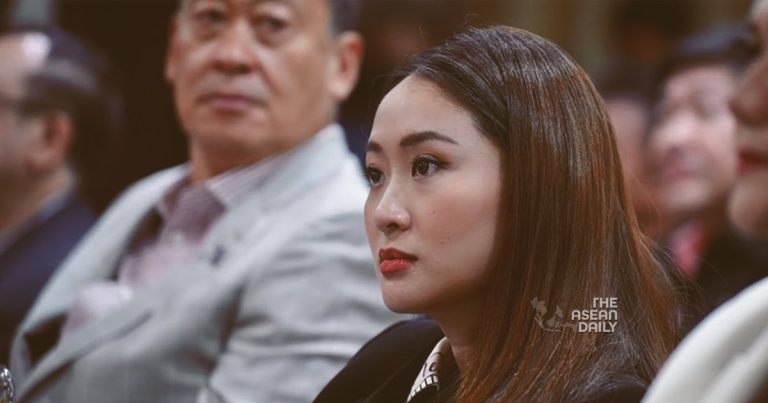10-8-2023 (BANGKOK) The political landscape in Thailand took a fresh twist on Wednesday as the Move Forward Party (MFP) declined to commit to supporting the prime ministerial candidate of the Pheu Thai Party in the upcoming parliamentary vote. Paetongtarn Shinawatra, the prominent figurehead of the Pheu Thai Party, revealed that the MFP’s position on this crucial matter remained shrouded in uncertainty.
In a pivotal rendezvous, Pheu Thai representatives, spearheaded by Ms Paetongtarn, convened with MFP leaders including party chief Pita Limjaroenrat, deputy leaders Sirikanya Tansakul and Pijarn Chaowapatthanawong, and secretary-general Thawatchai Tulathon. The discussion, lasting approximately an hour and a half, transpired at the MFP’s headquarters, situated a stone’s throw away from Pheu Thai’s base on Phetchaburi Road.
This marked a significant juncture, as it was the first instance of Pheu Thai seeking collaboration with the Move Forward Party, specifically regarding support for their prime ministerial nominee, Srettha Thavisin. The Pheu Thai delegation embarked on foot from their own premises to the MFP’s enclave, indicative of the magnitude of the discussions held.
As the meeting unfolded, Ms Paetongtarn and her fellow Pheu Thai stalwarts, including leader Cholnan Srikaew, deputy leader Phumtham Wechayachai, and secretary-general Prasert Chantararuangthong, engaged in candid exchanges with the MFP cohort. Speculation had arisen following previous indications of discord between the two factions, prompting keen observers to closely monitor the outcome of this rendezvous.
The backdrop of this interaction lay in Pheu Thai’s evolving role as the torchbearer of coalition-building efforts, having assumed the mantle from the MFP. The latter’s aspirations for securing the premiership faced a setback when Pita Limjaroenrat’s bid failed to garner sufficient favour within the Senate. Consequently, Pheu Thai’s initial memorandum of understanding (MoU) with the MFP and other participating parties underwent dissolution. This manoeuvre liberated Pheu Thai to explore alternative partnerships, as a growing number of political entities distanced themselves from the MFP due to their stance on reforming the contentious lese majeste law.
Notable parties within the former coalition, namely Bhumjaithai, Palang Pracharath, United Thai, and the Democrat Party, remained steadfast in their resistance to amend Section 112 of the Criminal Code. In the midst of this political realignment, Pheu Thai’s unexpected outreach to the MFP signalled a strategic recalibration, potentially driven by concerns about their capacity to secure adequate senatorial backing for Mr Srettha.
Underpinning the urgency of this decision is the stipulation that a prime ministerial contender must garner the support of no fewer than 376 Members of Parliament and senators combined. Emerging from the dialogue, Ms Paetongtarn acknowledged that the MFP’s stance on supporting Pheu Thai’s prime ministerial nominee remained elusive. “It appears we may need to exercise patience in awaiting their response,” she remarked.
Echoing this sentiment, Pita Limjaroenrat echoed the inconclusive nature of Wednesday’s talks. He expressed optimism that both parties could continue to maintain an amicable rapport within the parliamentary arena, despite the lingering uncertainties.




